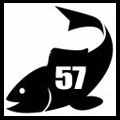-
 Will the DFG continue to plant fish? Or even allow it?
Will the DFG continue to plant fish? Or even allow it?
Some interesting reading here.........
Get involved and voice your opinions to the proper people who will make the decisions!.......
These are things to think about and things to get involved in NOW .... regarding fishing in California in the near future........
Fish farmers see 'huge' impacts from fish-stocking rules!
Aquaculture producers say proposed state regulatory changes aimed at minimizing environmental impacts from fish stocking activities could have paralyzing effects on their businesses and the lakes and ponds where they plant fish.
The California Department of Fish and Game, in a draft environmental impact report released this fall, proposed new rules that would impose higher-level inspections and certification requirements on all aquaculture farms that stock fish in the state's public or private waters.
Under the proposal, landowners who want to stock fish in their private lakes and ponds must also obtain a permit that subjects their property to inspections, such as for the presence of sensitive species, and a health certificate from the farm conducting the stocking. Private stocking permits are currently not required in 37 counties.
"The scope of these proposed changes in regulations is really huge," said Michael McCoy, executive director of the California Aquaculture Association.
In a letter reacting to the department's recommendations, the association called language in the report "flawed, confusing and/or ambiguous."
McCoy said implementation of DFG draft regulations would not only deliver an economic blow to the state's aquaculture producers but also to their clients, which include owners of farm and ranch ponds, duck and other outdoor sport club lakes, fee fishing lakes, as well as operators of mosquito abatement programs, public reservoirs and municipal lakes.
For fish farms, the new rules would mean yearly inspections to certify that their stocks are free of disease and invasive species, a concept that producers contend is "a hypothetical condition that does not exist."
"All living organisms carry some disease in their populations," McCoy said. "We think that the definitions make it really hard to imagine how we can stock public waters."
The costs of conducting these analyses also are potentially large, easily exceeding several thousand dollars annually for large facilities that raise multiple species, he added. This financial burden would cripple aquaculture businesses and destroy their profitability, he said.
Landowners who want to stock fish in their private lakes and ponds also will incur additional expenses. With the proposed permitting requirements, McCoy said producers fear their clients would try to avoid the regulatory burdens and costs and abandon their fish stocking efforts or acquire fish from illegitimate sources. The latter could have detrimental environmental effects, such as transfer of disease and introduction of invasive species, problems DFG is trying to mitigate in the first place, he added.
He said he thinks the new rules would be "really hard on both stockers and the people who are trying to receive the fish."
McCoy said many operators of private lakes and fishing programs, such as the Boy Scouts, have already canceled orders and redirected funds to other programs since DFG placed a moratorium on new stocking permits last December.
The state's hatchery and fish stocking program came under attack in 2006, when two environmental groups sued DFG over potential effects of its fish stocking activities on protected species such as the tiger salamander, red-legged frog, yellow-legged frog and other wildlife populations.
Although the state has been operating hatcheries for more than 100 years, DFG had not conducted an environmental review of the effects of that program. As a result of the court ruling, DFG was ordered to complete the evaluation, a draft of which has been circulating for comment since September.
It is unclear what the total economic impact of the new DFG rules would be, said Tony Vaught, owner of Professional Aquaculture Services in Chico, but he said he expects "all aquaculture in California will be affected, some more so than others, especially small farms and ranches that can't afford to go through all the steps that are required to get the certifications."
Don Crain, a Tehama County aquaculture producer, said the proposed rules would have far-reaching implications for fisheries such as his, which sells fish as food and for recreational purposes. He said he's afraid private operations would simply forgo his services if they need to be permitted.
"We're going to be losing that avenue to stock your average farm pond," said Crain, who currently stocks fish for the DFG stocking program as well as other private ponds in the Bay Area.
Vaught said producers already operate under strict protocols to prevent the spread of disease and invasive species and are troubled by the extent of proposed regulation for private fish farms and their clients.
But Jim Starr, a fisheries biologist with DFG who is overseeing the development of the environmental impact report, said private stocking activities were included in the environmental assessment because the department identified potential impacts associated with the 37 counties that are currently exempt from needing private stocking permits.
"That is a major impact that we have no control over, yet it's something that is within our grasp to control," he said. "We have no idea what those impacts are. However, we do know that listed species or species of special concern are present in those areas and they potentially could be impacted by the stocking of fish."
He said the proposed changes would bring all areas of the state in line, so that everybody who stocks fish needs to have a private stocking permit, regardless of whether the private pond or lake spills into public waters.
"Right now we have no idea what level of stocking goes on in the counties of California where there's no private stocking permit required," said Starr. "And there's no way for us to find out."
Specifically, the department is "trying to get a handle on" the stocking of other hatchery-raised fish such as trout, bass and catfish, Starr said. Applications for private stocking permits would be evaluated on a case-by-case basis. For example, if stocking takes place in an urban backyard pond, there's probably little to no impact on special-status species vs. if the property is in red-legged frog habitat, he said.
But Vaught said with the way the DFG environmental document is written now, "there's no reason to think" that the proposed rules do not apply "to every wet spot in California."
McCoy said what his association would like to see happen is for DFG to "clean up" some of its definitions in the environmental impact report, specifically terms such as "disease and parasite free." Another suggestion is for the state to regulate its own stocking recipients in its own waters, rather than every private recipient in the state.
Vaught said current regulations have worked fine for many years and he doesn't see any reason to change the process.
"We don't mind some reasonable regulation," McCoy said. "We just don't see why we need these extra layers of regulations."
The department is now reviewing public comments on its draft report and said it expects to have a finalized version in January. For more information, see www.dfg.ca.gov
http://cfbf.com/agalert/AgAlertStory...42AD32258076B9
MORE..........
The lawsuit that forced the Department of Fish and Game to address the environmental impacts of its entire trout and salmon hatchery and stocking program might have some serious, unintended consequences.
It could result in a crippling of the state's private aquaculture industry.
For sportfishermen, that could mean that private stocking programs for trout and catfish could be severely reduced or come to a screeching halt. But the trickle down affect could mean that people who have backyard koi ponds might have to get permits and provide quarterly documentation their ponds are disease- and invasive species-free.
The draft environmental document being circulated by the Department of Fish and Game for public comment before going back to the court and the litigants for approval has language that has terrified private growers of trout, catfish and other fishes throughout the state. Why? Because it would result in a whole new set of regulations, permits, and testing that affect their businesses.
Tony Vaught, of Professional Aquaculture Services in Chico, has been talking with private hatchery owners throughout the state, and he says the DFG's preferred alternative in the environmental document would have two particularly onerous points:
1) It would require anyone stocking any water in the state, including a private, backyard pond, to obtain a stocking permit from the DFG. To get the permit, you would have to provide annual documentation (by hiring a professional) that no sensitive species are present. 2) A water could also only be stocked with fish obtained from a certified disease-free source. In addition, that facility has to be invasive species-free and checked quarterly for invasive species.
Vaught, and other growers, point out that many private facilities currently providing fish for city, county, state, and private waters for recreational fishing programs could not meet the disease- and invasive-free criteria. Many of the Department of Fish and Game's own hatcheries don't meet these criteria.
"What happens if they find something, something that kills a pollywog or something. Do they shut the whole [fish] farm down?" said Doug Elliott, who owns Corona Lake and the fishing concession at Santa Ana River Lakes.
He is concerned that it will make it more expensive and harder, if not impossible, to get trout and catfish for his and hundreds of other recreational fishing programs across the state.
Elliott said that trout and catfish growers have been disappearing from California because of increasing costs and more regulations for the past decade. His costs for fish have far outpaced the rate of inflation, and he is concerned that it will simply become impossible to get fish.
Anglers across the state should have the same concerns. Private hatcheries have picked up the slack as DFG plants and planting locations dwindle. No one dreamed the private hatchery would be threatened by this lawsuit, too. But the DFG is making sure this whole thing spirals out of control.
The amount of environmental damage caused by the DFG's hatchery program (and the private hatchery program) is almost negligible. If you were to say all of the state's aquatic environmental damage was a glass of water, the problems caused by hatcheries would be a fraction of a drop.
The DFG's environmental document doesn't even attempt to address the real issues that have been the major contributing factors to the spread of aquatic diseases and invasive species: water transfers. Quagga mussels are now throughout the Colorado River system and virtually every water in Southern California that gets water from the Colorado River. Imagine that. It also fails to look at the biggest impacts on native species: dams. Dams have changed the whole character of rivers below those dams or blocked migration to spawning areas. The San Joaquin River has been dry in places for decades. It's kind of hard to have native steelhead and salmon runs in a dry river bed. Yes, the DFG's environmental document was specifically about hatcheries, but it should have placed the known damage from hatcheries in the framework of overall damage to the resource. That's called perspective. The DFG document doesn't give this perspective.
Fixing the state's hatchery problems is like treating a paper cut on someone who's having a massive heart attack. In today's world, the benefits of the DFG and private hatchery programs far outweigh the minuscule problems they cause, and the few egregious exceptions are easy fixes.
This should have been recognized when the California Environmental Quality Act (CEQA) was passed decades ago, and the DFG should have written a categorical exemption for the hatchery program. Then there could never have been a lawsuit contesting the whole hatchery program, just site-specific lawsuits that address those few serious problems. The DFG hasn't had anyone with foresight in decades. It's a wildfire response agency: Put water on flames and set backfires. Heaven forbid we'd actually try to manage the forest to prevent massive fires.
Now, there's no predicting all the casualties from the hatchery environmental document. You can thank the DFG for that.
-

Get the Koi fans on board to fight this too-this shouldn't sit well with anyone.
-
 Thanking you for posting this important information
Thanking you for posting this important information
Fisherman 57,
Thank you for bring this important information to our attention.
I am so concerned about the direction our sport is heading under the guise of environmental protection of endanged species.
Perhaps the more people who get involved at this stage can put some common sense into the regulation that are coming down the road. However, after seeing how little affected the public comments had on the MLPA; I do not have a lot of confidence.
Saddened it see it happening,
BassinPLS
-

there are always so many different sides to any story.
it's no really clear to me...that there is really ANY REAL right or wrong in this situation.
i don't see anything wrong with regulation or inspections, considering there may not be ANY INSPECTION in some of these counties were fish farming takes place.
business folk, will always oppose regulation / inspections, because it means that they make less money, either due to fines for not "keeping up", or money spent to insure that they are "up to code". so i can understand their gripe.
i myself, do enjoy fishing private stocked lakes, as well as dfg stocked spots. but you must admit that some of the fish that come out of those places, just don't look very healthy. huge "so-called prized" toads, with ZERO fin / tail. huge amino fed hogs, raised in pens.
look at all the different meat recalls. there is definetly something kinda wrong with MASS PRODUCED INDUSTRY fish/beef/chicken etc. i read a story that referenced all of the lead that is in the USA watershed systems, and how some crazy number like 90% of all fish have extremely high levels of toxins.
kinda gross. BUT I STILL LOVE TO FISH. CAN EMPATHIZE WITH THE FISH FARMERS. AND HOPE THAT THE NEW REGS, ONLY ENHANCE OUR QUALITY OF FISH AND NOT DETRACT OR RUIN THE LIMETED RECREATION SOURCES WE STILL HAVE.
thank you for reading. i'm not trying to change any opinions, just voicing a thought i had after reading the original post.
out like trout!!!!
-

All these lawsuits & closing off areas to fishing and so forth are just crazy. Its like someone somewhere don't want the public to fish . Something's wrong with the world today ..... Living on the Edge !!!!
Last edited by Troutman65; 12-07-2009 at 09:43 PM.
-
 Not surprised. Not at all.
Not surprised. Not at all.
Sounds about right, not surprised one bit. What do you expect...this state is run by a bunch of Panzies and Sh*t Heads to say the least.
Doesn't look good guys. Not good at all.
-

Think its about time to move from california...
-

All the while more and more of our fish and even vegetables are coming from China...where we all know how much they get inspected..the quailty of water, fertlizer etc.
This is not about safety IMO,. It is about control, taxes and fees. It is that simple.
-

screw the endagered species. animals and plants have been endangered and going extinct for billions of years. its natural. there not stocking some creeks and lakes because of a frog. and in these lakes are already bass that eat frogs. so wtf mate?
-

California is seriously pissing me off right now.
 Posting Permissions
Posting Permissions
- You may not post new threads
- You may not post replies
- You may not post attachments
- You may not edit your posts
-
Forum Rules












 Reply With Quote
Reply With Quote







